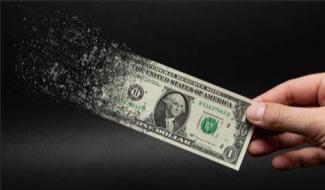
Inflation Fears
The headlines are kind of alarming: last month, the U.S. inflation rate spiked to the largest increase since December of 1981. The Commerce Department’s basket of consumer products was 8.5% more expensive in March than it was a year earlier.
Before anyone becomes too alarmed, they should know that half of that increase came at the gas pump, the aftermath of the energy disruptions associated with the ongoing war in Ukraine. Since then, gas prices have come down a bit, and there is no good reason to imagine that the pain at the pump is permanent.
More problematic is the rise in grocery prices, which are also impacted by the war. Both Russia and Ukraine are exporters of wheat; whenever supplies decrease, assuming constant demand, prices rise. Bread and a host of other food products suddenly become pricier.
Airline tickets are becoming more expensive because airlines are no longer begging people to take the Covid risk of flying. Airlines are paying more for fuel than they were a year ago. And manufacturers are still dealing with transportation bottlenecks.
None of this helps us understand why egg prices are up over 11% from last year, and the Easter ham that many Americans prepare over Easter weekend jumped up 14% in cost.
IS there an explanation? Part of the reason economists fear inflation is the mindset that it creates. When workers and companies see prices going up, they prepare for it by demanding higher wages and higher prices for their products. Barbers and massage therapists ask for a few dollars more for their services, and then a few dollars more because everybody else has raised prices—and so it goes. Suddenly—and nobody knows exactly where or how we cross that threshold—inflation becomes a self-fulfilling prophecy. And these cycles can be very difficult to stop.
Sources:
https://www.npr.org/2022/04/12/1092414592/the-rate-of-inflation-made-its-sharpest-spike-since-1981

